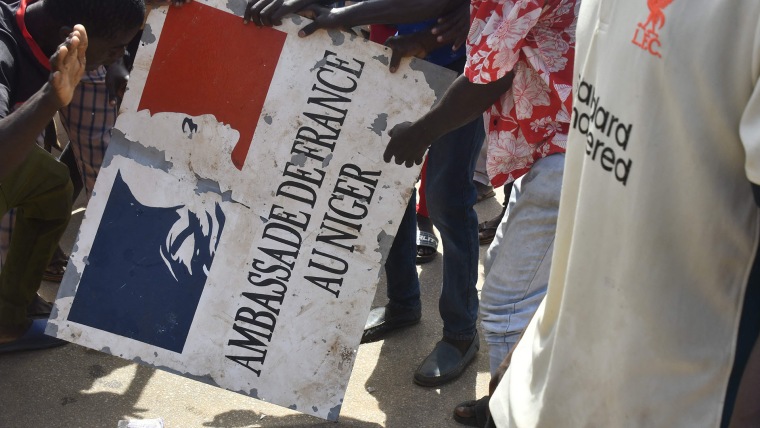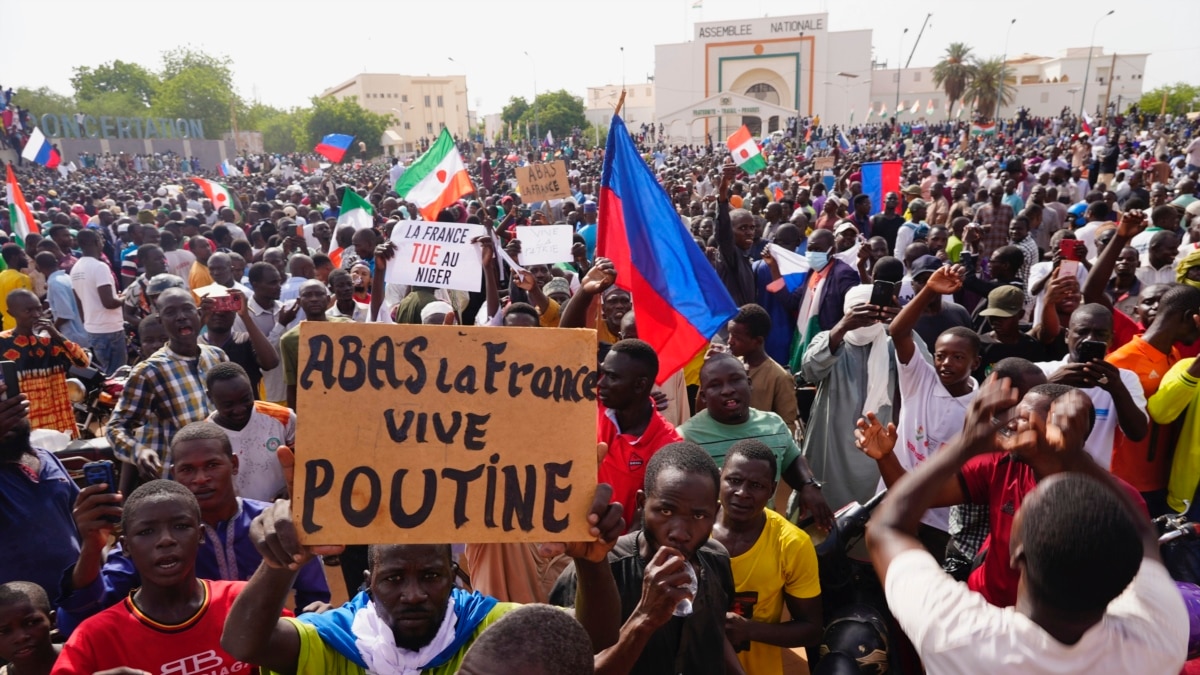US Actions in Niger Highly Disappoint France: Who Needs Enemies, When They Have Friends Like USA?
French Diplomat over Niger Situation expresses deep disappointment towards actions by USA, says France does not need enemies, when it has allies like them.

US Actions in Niger Highly Disappoint France: Who Needs Enemies, When They Have Friends Like USA?
By allegedly undermining its NATO ally France, the United States has once again rattled the underpinnings of the trans-atlantic partnership. A diplomatic uproar has resulted from the decision to send Deputy Secretary of State Victoria Nuland to communicate with the new military government of Niger. Detractors have criticized the action as a violation of trust as well as solidarity.
A French diplomatic source recently told the French publication Le Figaro that she was extremely disappointed with the US for choosing to communicate directly with the military regime in Niger. The source was quoted as saying, “US did the exact opposite of what we thought they’d do. With allies like these, we do not need enemies.” The notion that the United States has abandoned its closest allies in order to pursue a more self-serving strategy captures the rising dissatisfaction among the French establishment.
The choice to send Deputy Secretary of State Victoria Nuland to talk to the military regime in Niger appears to undercut the NATO alliance’s core foundation. The success of NATO, which was founded on the tenets of collective defence as well as shared values, depends on the willingness of its members to come together as one in situations of crisis. France had every right to anticipate continuous backing from the United States, in particular when it was dealing with issues impacting its strategic interests as an active participant of NATO’s initiatives.
Since the United States wants to protect its own interests in the area, Nuland’s trip to Niger might be seen as a pragmatist action. It is important to recognize the geopolitical importance of Niger, particularly in light of its role in anti-terrorist operations and its proximity to important resources. But this realpolitik strategy appears to be at the expense of long-standing relationships and the deterioration of alliance confidence.
The Sahel region has been rocked by the sudden toppling of Niger’s democratically elected President Mohamed Bazoum, endangering stability as well as raising concerns about international cooperation in the battle against Islamist terrorism. The apparent weakness of the American response adds salt onto the wound as well as raises concerns regarding the long-term viability of counterterrorism measures as France struggles with its own declining clout in the region.

Niger has for years served as a cornerstone in Western attempts to combat terrorism in the Sahel due to its strategic significance as a defence against al Qaeda, the Islamic State, and Boko Haram. Both France and the US have made significant investments in this coalition because they view Niger as a trustworthy ally in the struggle against extremist elements. The most recent coup, however, poses a threat to reverse the gains and jeopardize the stability that has been painstakingly established over time.
France, which has historically played a prominent role in West Africa, has recently struggled with a loss of influence. The Barkhane mission, which involved French forces in Burkina Faso as well as Mali, had to be abandoned, highlighting how difficult it is to retain authority in the area. In this context, Niger was viewed as a shining example of a new strategy for military cooperation in which France sought to build an alliance with African nations on an equal basis, moving beyond its colonial past. The latest coup and the exodus from Burkina Faso and Mali have now compromised France’s strategy.
France had turned to its Western allies for assistance and solidarity in the face of this catastrophe. France, on the other hand, is dissatisfied with American behavior and questions the depth and meaning of their relationship. Despite the fact that U.S. Secretary of State Antony Blinken reaffirmed his country’s steadfast commitment to democracy, the rule of law, and respect for human rights in Niger, the nation’s reaction seemed rather insufficient in light of the seriousness of the crisis. France has experienced emotions of abandonment as a result of this apparent lack of urgency as well as dedication, leading them to doubt regarding the effectiveness of their collaboration.

The simple fact that both France as well as the United States are simultaneously on diplomatic missions in other regions of the world – President Macron in the region known as the Indo-Pacific as well as Blinken in the same area – further adds to France’s dissatisfaction. Due to their geographical difference, France has been forced to handle the situation primarily on its own, highlighting the lack of a coordinated, unified reaction from their Western allies.
The Wagner Group, led by Yevgeny Prigozhin, is accused of being involved in the coup and taking credit for it while presenting it as an act of anti-colonial emancipation, which only serves to aggravate the situation. Despite the lack of concrete evidence of Moscow’s involvement, the Sahel region’s geopolitical complexity is highlighted by the simple existence of a Russian mercenary group. The importance of robust and consistent Western support is further highlighted by this circumstance, which, in France’s opinion, the U.S. response lacked.
The United States’ perceived betrayal of France by failing to provide a forceful and coordinated reaction to the unfolding coup in Niger is rooted in the intricate dynamics of counterterrorism efforts, old allies, as well as the larger geopolitical context. The situation in Niger not only raises fears in France about its dwindling influence in the region, but also poses a threat to years of success in the fight against terrorism. It is unclear how the Western partners will react as these events develop in order to handle the issue and reaffirm their commitment to stability and security in the Sahel.
The French diplomatic source’s scepticism as well as dismay reflect a wider pattern of escalating disquiet in Europe regarding the direction of US foreign policy. The United States has frequently seen to put its interests ahead of those of its traditional friends, as is the case now. The tense decision to leave the Iran nuclear agreement and the Paris Agreement on climate change, as well as trade conflicts, have put strain on the transatlantic alliance.
Whether or not the United States can be relied upon as an ally, is at the core of this problem. The story that is emerging from the diplomatic source in France emphasizes the idea that the US activities are in direct opposition to its rhetoric of alliance as well as unity. Such dissonance only serves to increase skepticism about the viability of alliances in a world when uncertainty is on the rise.
However, it is important to consider this episode in a more general way. Alliances must change to reflect shifting geopolitical situations, and diplomacy is frequently a complex dance of interests and goals. Even while the French diplomatic source’s disappointment is understandable, it’s crucial to understand that things in international relations are rarely cut and dried.
In conclusion, the choice to send Victoria Nuland, the deputy secretary of state, to talk to the new military government in Niger has surely upset the delicate balance between the US as well as its NATO ally France. Although some would regard this as a betrayal, it is as possible to interpret it as an example of developing foreign policy priorities and strategies. It will be interesting to see how both countries manage these turbulent seas after the dust settles and whether or not the transatlantic cooperation can withstand yet another storm.





